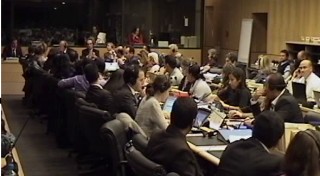Home » Morocco » MOR - News » Morocco: Alkarama highlights need to follow through positive developments with legislative changes
The report highlights the strong political will of Morocco to combat torture, underlined by the visit of the UN Special Rapporteur on Torture to the country in September 2012. However, as the Special Rapporteur announced following his visit, torture is still present in the country, and efforts need to be stepped up. In particular, legislative changes remain necessary in order to bring the definition of torture into line with the Convention.
Moreover, the State party has promised to review criminal convictions that had been solely based on confessions obtained under torture or ill-treatment, to take the appropriate remedial measures and to inform the Committee of its findings. This promise has not, as yet, been fulfilled.
As for the Anti-Terrorism Act of 2003, which has been the cause of numerous violations, no changes have been made and the basic legal safeguards relative to the individuals under arrest remain inadequate. In turn, it seems unrealistic to combat torture if the government persists in denying the existence of detention facilities where people have admittedly been, and continue to be, held in secret for long periods of time. An independent body must start monitoring all of these facilities, as is required by the Optional Protocol to the Convention against Torture.
Finally, the State party should launch independent and impartial investigations into all cases involving allegations of torture, with the help of independent medical examiners and in accordance with the international standards established under the Istanbul Protocol. Fighting against the impunity for acts of torture indisputably remains the most effective way to put an end to this scourge.
Alkarama's visit to the country, planned for January 2013, will serve as the perfect opportunity to discuss these recommendations with state authorities, and we will continue to monitor developments in the country closely.
 Algeria
Algeria Bahrain
Bahrain Djibouti
Djibouti Egypt
Egypt Iraq
Iraq Palestine/Israel
Palestine/Israel Jordan
Jordan Kuwait
Kuwait Lebanon
Lebanon Libya
Libya Mauritania
Mauritania Morocco
Morocco Oman
Oman Qatar
Qatar Saudi Arabia
Saudi Arabia Sudan
Sudan Syria
Syria Tunisia
Tunisia United Arab Emirates
United Arab Emirates Yemen
Yemen Other Countries
Other Countries


